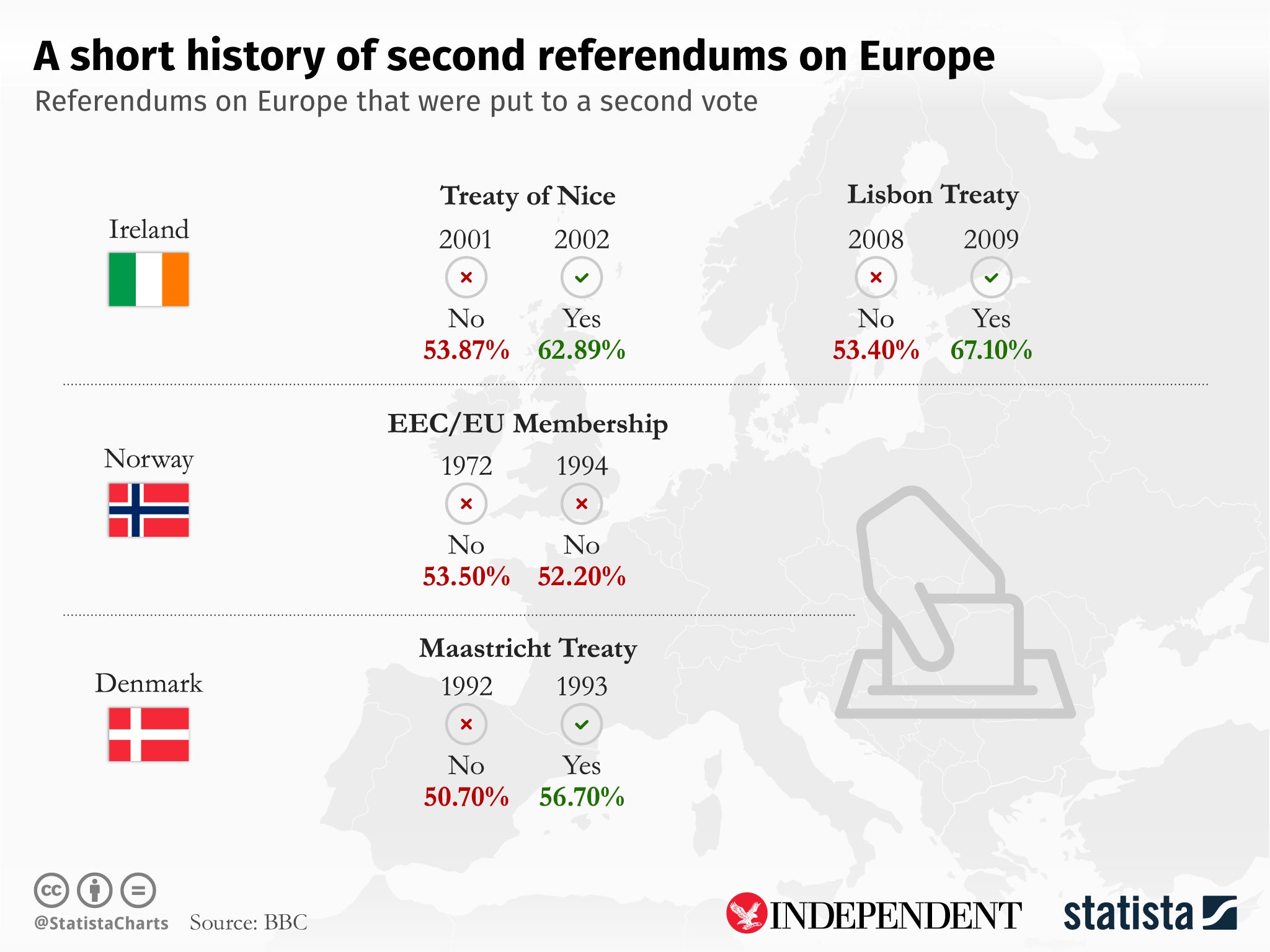Like the general election, Theresa May will speak out against a second referendum right until she calls it
Our PM has been driven to this point by a stubbornness which borderlines on performance art. And politics, it should be made clear, is not supposed to be like this

There is no surer sign in British politics that something is likely to happen than Theresa May either denying it or warning against it.
Just as moves in certain stocks and industries such as construction or property, foretell the arrival of economic pain, the louder any May denials get, the more real something becomes.
At the weekend, 10 Downing Street turned down several opportunities to deny it is planning for a second referendum. Then Theresa May announced she would be coming to the despatch box of the House of Commons, yet again, to warn a second referendum would “divide the country at the moment it needs to come together”.
She is the prime minister. If she doesn’t want a second referendum it would require precarious parliamentary processes and uneasy political alliances to make it happen. Large numbers of MPs who are against the plan would have to consent to a second vote with much reluctance.
As the possibility rises, it has been regularly pointed out May made similar assertions about a snap general election, right up until the moment she called one.
“What the country needs is a period of stability, an election would bring instability,” she said at least six times in televised interviews with Andrew Marr, Laura Kuenssberg and others.
Though she was hopelessly wrong in her claim she wouldn’t call one, her analysis was curiously correct. An election has indeed brought instability, on a scale barely surpassed within living memory.
Her analysis of the risks of a second referendum may well be accurate too, but she has been driven to the point through a stubbornness that has now become almost performance art. Almost two years ago now, she publicly set out her red lines – for Britain to be out of the single market, out of the customs union, and have no hard border in Ireland – without realising these went straight through each other like a noughts and crosses board.
She has failed to deliver on promises that could never have been delivered upon, and can now only say “there is no alternative”. When she returned from Brussels with her deal several weeks ago, she warned it was a choice between that agreement, “no deal or no Brexit at all”. Parliament has already made clear it will do everything it can to prevent a no-deal outcome. So now the PM is seeking to strike down the other option – a second referendum that might deliver no deal at all.

Would another referendum divide the country? Of course it would, and if Remain won, especially so. But would it be more divisive and damaging than Brexit itself threatens to be? That is by no means clear.
Thus far, the country has been shielded from the worst economic effects by a great global economic boom it has missed out on. But in the short to medium term Donald Trump is deliberately overheating the US economy for political reasons, China is slowing and a trade war is brewing. In the middle of these frightening realities, the unhinged wing of a once responsible party of government is advocating for a grotesque act of self-harm – a no-deal Brexit – and seeking to sanitise the reality of such an outcome by sticking the meaningless prefix “managed” in front of it.
Politics, it should be made clear, is not meant to be like this. Prime ministers are not meant to be scared of voters, intimidated by them into doing things they think crazy. Parties and prime ministers govern with the consent of the people, because they have talked them round to their way of doing things. They have led.
Theresa May voted Remain. A year later she stood outside 10 Downing Street and warned voters “if we get this negotiation wrong, the high-paying jobs you want for your children simply will not be there”.
Those negotiations are over. They have produced an outcome nobody wants. Theresa May understands the potential consequences and her course of action is to seek to frighten other politicians, and the people in general, with her own fears.
But, as always with May, the louder and more repetitive the warnings, the less likely they are to be heard.
Join our commenting forum
Join thought-provoking conversations, follow other Independent readers and see their replies
Comments
Bookmark popover
Removed from bookmarks